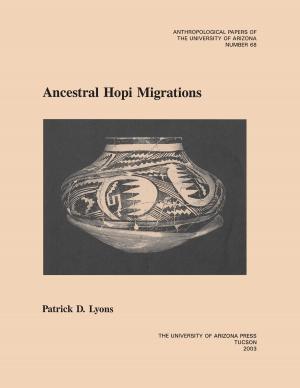Behind the Mask
Gender Hybridity in a Zapotec Community
Nonfiction, Social & Cultural Studies, Social Science, Gender Studies, Cultural Studies| Author: | Alfredo Mirandé | ISBN: | 9780816536252 |
| Publisher: | University of Arizona Press | Publication: | March 21, 2017 |
| Imprint: | University of Arizona Press | Language: | English |
| Author: | Alfredo Mirandé |
| ISBN: | 9780816536252 |
| Publisher: | University of Arizona Press |
| Publication: | March 21, 2017 |
| Imprint: | University of Arizona Press |
| Language: | English |
The image of biologically male people dancing while dressed in the traditional, colorful attire of Zapotec, Juchiteca, females stands in sharp contrast to the prevailing view of Mexico as the land of charros, machismo, and unbridled ranchero masculinity. These indigenous people are called los muxes, and they are neither man nor woman, but rather a hybrid third gender.
After seeing a video of a muxe vela, or festival, sociologist Alfredo Mirandé was intrigued by the contradiction between Mexico’s patriarchal reputation and its warm acceptance of los muxes. Seeking to get past traditional Mexican masculinity, he presents us with Behind the Mask, which combines historical analysis, ethnographic field research, and interviews conducted with los muxes of Juchitán over a period of seven years. Mirandé observed community events, attended muxe velas, and interviewed both muxes and other Juchitán residents. Prefaced by an overview of the study methods and sample, the book challenges the ideology of a male-dominated Mexican society driven by the cult of machismo, featuring photos alongside four appendixes.
Delving into many aspects of their lives and culture, the author discusses how the muxes are perceived by others, how the muxes perceive themselves, and the acceptance of a third gender status among various North American indigenous groups. Mirandé compares traditional Mexicano/Latino conceptions of gender and sexuality to modern or Western object choice configurations. He concludes by proposing a new hybrid model for rethinking these seemingly contradictory and conflicting gender systems.
The image of biologically male people dancing while dressed in the traditional, colorful attire of Zapotec, Juchiteca, females stands in sharp contrast to the prevailing view of Mexico as the land of charros, machismo, and unbridled ranchero masculinity. These indigenous people are called los muxes, and they are neither man nor woman, but rather a hybrid third gender.
After seeing a video of a muxe vela, or festival, sociologist Alfredo Mirandé was intrigued by the contradiction between Mexico’s patriarchal reputation and its warm acceptance of los muxes. Seeking to get past traditional Mexican masculinity, he presents us with Behind the Mask, which combines historical analysis, ethnographic field research, and interviews conducted with los muxes of Juchitán over a period of seven years. Mirandé observed community events, attended muxe velas, and interviewed both muxes and other Juchitán residents. Prefaced by an overview of the study methods and sample, the book challenges the ideology of a male-dominated Mexican society driven by the cult of machismo, featuring photos alongside four appendixes.
Delving into many aspects of their lives and culture, the author discusses how the muxes are perceived by others, how the muxes perceive themselves, and the acceptance of a third gender status among various North American indigenous groups. Mirandé compares traditional Mexicano/Latino conceptions of gender and sexuality to modern or Western object choice configurations. He concludes by proposing a new hybrid model for rethinking these seemingly contradictory and conflicting gender systems.















